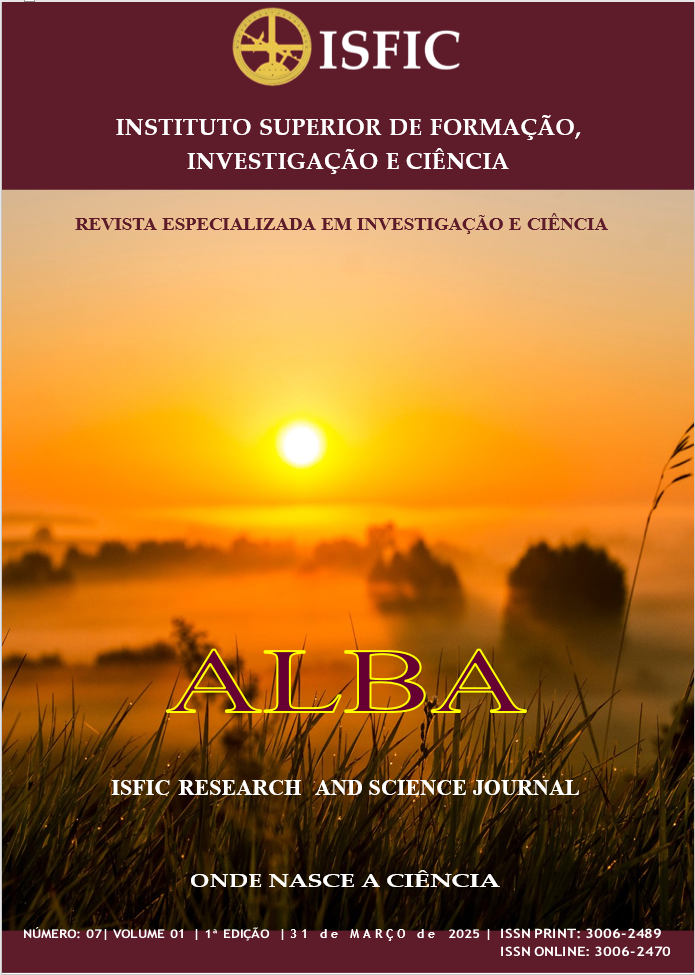The role of science, technology and innovation for the sustainable economic development – The case of Shoprite-Angola
Keywords:
Science, technology and innovation, economic development, shoprite. R&DAbstract
Science, technology and innovation (STI) is on the world stage of fundamental instruments to foster development, economic growth, job creation, income generation and democratization of opportunities (Pacti, 2007, p. 29). Countries that focus their activities on scientific research, technological development and their incorporation into the production process will be able (Silva, 2008) to generate products with greater technological content and, therefore, increase added value and competitive advantage for organizations. However, this approach, at the level of organizations, requires greater approach within the framework of creating a science and technology that is capable of promoting sustainable socioeconomic development. Currently, in Angola and other African countries, discussions about new ways for organizations to develop and survive in an increasingly competitive market, where new needs emerge, are notorious. Therefore, this work aims at emphasizing the concern on seeking greater use of science, technology and innovation for sustainable economic development, presenting important concepts and reports for understanding the topic in question and an inductive practical analysis, in order to clarify the various benefits that investment in science, technology and innovation can bring to companies and consequently to society. In an explanatory research, with the proposition of qualitative analysis of the object of investigation (Vergara, 2007), an analysis will be made of the situation of science, technology and innovation in Angola, the innovative profile and technology absorption of the company SHOPRITE and, consequently, the repercussions of investments in research, technology and innovation at the endogenous and exogenous level of the multi-national.
Downloads
References
Archer, R. (1988). Tecnologia e Desenvolvimento. Revista Brasileira de Tecnologia, 19(1), pp. 46.
Barbieri. (2010). Inovação e sustentabilidade: Novos modelos e proposições. Revista de Administração de Empresas. São Paulo. V. 50, N. 2. Abr./Jun.
Belfort, N. (2012). Da Reforma do Código Florestal e o Conflito de Interesses entre Ruralistas e Ambientalistas.
Revista De Direito Da Unigranrio, v. 5, n. 1, p. 24.
Bourdieu, P. (2008). A miséria do mundo / sob direção de Pierre Bourdieu; com contribuições de A. Accardo... ET. AL. 7. Ed. – Petrópolis, RJ: Vozes.
Couto et al. (2004). Ciência, Inovação e Desenvolvimento Sustentável: Desafios e implicações estratégicas para a universidade. II Seminário Internacional - Rede Alfa PLanGIES 25-29 de Outubro. Covilhã, Portugal.
Dias, R. (2009). Gestão Ambiental Responsabilidade Social e Sustentabilidade. 1ª Ed., São Paulo: Atlas.
Kotler, P. (2000). Administração de marketing. São Paulo: Prentice Hall.
Marconi, M. A. (1999). Técnicas de Planejamento e execução de pesquisas, amostragens e técnicas de pesquisas, elaboração, análise e interpretação de dados / Marina de Andrade Marconi, Eva Maria Lakatos. 4ª. ed. – São Paulo: Atlas.
Meadows, D. H. et al. (1992). The limits to growth. New York: Universe Books, 1972. – Beyond limits: confronting global collapse, envisioning a sustainable future. S. l.: Chelsea Green Publishing Company.
Ngunga, E. J. (2015). Science, Technology and Innovation – The challenges of strengthening the national innovation system of Angola. BH, Brasil.
PACTI – Plano de Ação 2007-2010: Ciência, Tecnologia e Inovação para o Desenvolvimento Nacional, elaborado pelo Ministério da Ciência e Tecnologia (MCT).
Pinto, A. V. (2005). O Conceito de Tecnologia. Vol. I. Rio de Janeiro: Contraponto.
Política Nacional de Ciência, Tecnologia e Inovação. Decreto Presidencial n°201/11 de 20 Julho.
Porter, M. (1980). Estratégia competitiva: técnicas para análise de indústrias e da concorrência. Rio de Janeiro: Campus.
Sachs, I. (2002). Caminhos para o desenvolvimento sustentável. Rio de Janeiro: Garamond.
Schumpeter, J. A. (1997). Teoria do Desenvolvimento Econômico. Uma investigação sobre lucros, capital, crédito, juro e o ciclo econômico. Editora Nova Cultural Ltda. São Paulo.
Shoprite Holdings–Integrated Report, 2023. https://www.shopriteholdings.co.z.
Silva et al. (2008). Avaliação do Nível de Inovação Tecnológica nas Organizações: desenvolvimento e Teste de uma Metodologia. Revista Produção. ISSN 1676 - 1901 / Vol. VIII/ Num. IV/.
Vanessa, I. (2008). Inovação Tecnológica E Desenvolvimento Sustentável: Uma Análise Comparativa Em Empresas. MG.
Veraszto, E. V.; et al. (2008). Tecnologia: Buscando uma definição para o conceito. Campinas, São Paulo.
Vergara, S. C. (2007). Projetos e relatórios de pesquisa em administração. 8 ed. São Paulo: Atlas, p. 93.
Viotti, E. B. (2002). National Learning Systems: a new approach on technological change in late industrializing economies and evidences from the cases of Brazil and South Korea; Technological Forecasting and Social Change, 69(7), p. 609-80.







